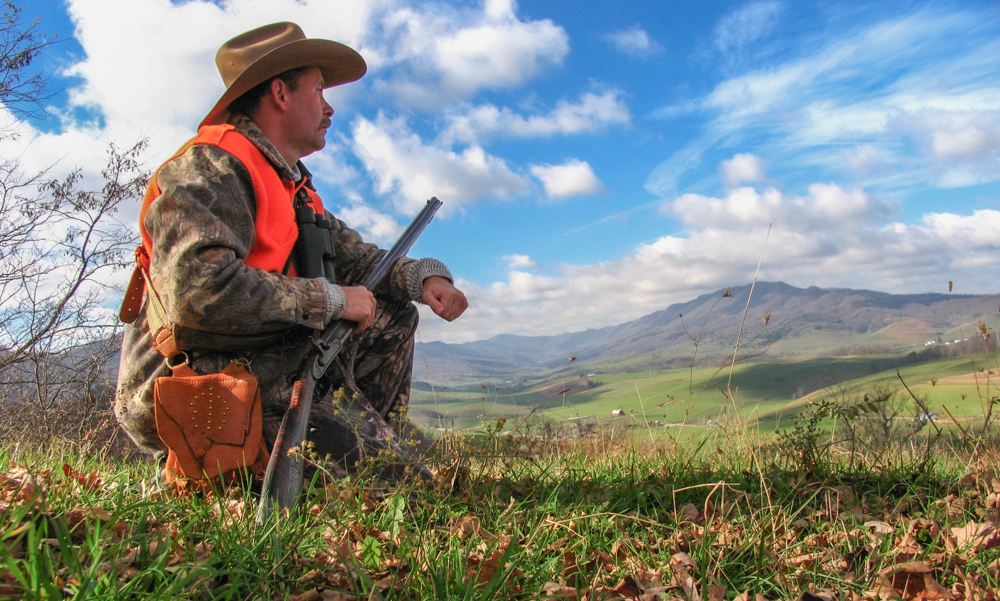
An editor once asked me why I often mention that I’m a hillbilly in the articles I write. At first I thought this a rather strange question and then realized since the editor was not a hillbilly, he probably wouldn’t understand. For that same reason, I imagine some readers don’t understand either.
Interestingly, a reader once asked me, “Why do you live in West Virginia? Most gun writers live out west.”
I thought this question was even stranger, and when I answered by saying, “Because, that’s where all my stuff is at.” I figure the guy thought I was a smart ass. I might be, but that has nothing to do with the “hillbilly” thing…or maybe it does.
Hillbillies are proud, but I imagine no prouder than Hoosiers or Tar Heels. The real difference is how hillbillies became hillbillies and the kind of person that being a hillbilly makes you. For example, when I was signing free copies of my book for those attending the NRA Annual Meetings in Houston, Texas, I met a woman originally from West Virginia. She told her Texan friend, “I sure miss West Virginia. The men here in Texas ant nothing like them men from West Virginia. When a West Virginia man does something he does it with conviction.” I don’t think she was talking about chores or work…but I did not ask.”

Hillbillies are a different breed. This is partly due to how residents of the Appalachia Mountain region came to live there – where their stuff is at. It was once said a hillbilly is a free and untrammeled white citizen, who lives in the hills, has no means to speak of, dresses as he can, talks as he pleases, drinks whiskey when he gets it, and fires off his revolver as the fancy takes him. That pretty much sums it up. But, how did we get to the point where a description like that typifies us?
The Appalachian region was largely settled in the 1700s by Scots-Irish Protestants. Due to their religious beliefs and clannish ways, these folks were, for the most part, forced into the hills by the more affluent English and French settlers of the lowland coastal areas. In fact, they were encouraged to go “settle” the hills because no one else – other than a few Germans – had the grit to do it.
The name “hillbilly” was probably derived from the linkage of two old Scottish expressions; “hill-folk” and “billie” which was a synonym for a “fellow”or”bloke”. Of course there is another theory and it deals with the 17th century Irish supporters of King William III. During the Irish Williamite War the Irish Catholic supporters of James II referred to the northern Protestant supporters of “King Billy”, as “Billy Boys”.

And then there came the Civil War and the clannish ways of these immigrants – which had a profound distrust for leadership which did not come up through their clan ranks – fell in with the Rebels. It wasn’t a slave issue in the Appalachians, it was the notion that a Government, which lacked representation of their clans, was going to tell them what to do. My Great, Great Grandfather was one of those. He joined the Confederate Army of Virginia, lived through the conflict, and then married a – no shit – Cherokee Indian princess.
After the war, as the frontier pushed west, the Appalachian country was forgotten during reconstruction and retained its frontier character. Fueled by news stories of mountain feuds between clans such as the Hatfields and McCoys, the hillbilly stereotype of hard living, hard working, hard fighting, and hard drinking, was crystallized.
That “government thing” sort of happened again during prohibition; you can’t expect a Scotsman or an Irishman to quit drinking. Moonshining became not just a criminal enterprise but an occupation for many mountain folk; my grandfather included.

Then, later on during the two great wars, Korea, and Vietnam, the descendants of those hard as nails Scots-Irish immigrants volunteered for the military at a far greater percentage of the demographic or area than any other. 44 West Virginian’s have been bestowed with the Medal of Honor and the mountain ways and toughness of West Virginians like Chuck Yeager set a standard other West Virginians were expected to live up to when entering military service, or even everyday life. I remember when I arrived at basic training my drill sergeant said, “Well, at least we won’t have to teach you how to shoot.” He was right.
300 years after our hillbilly ancestors began settling the Appalachian mountain range, not much has changed. Most folks here still go to church regularly. The family – the clan – is still the most important aspect of life. Most folks here in these hills have a gun – multiple guns – they have no inclination to part with. And, we still dress as we can, talk as we please, drink whiskey, and shoot those guns with regularity.

So, to answer the question of, “Why do you often mention you’re a hillbilly?” Well, if folks are going to read what someone writes, they need to know who that someone is. I’m a descendant of Scots-Irish and German immigrants who settled some of the roughest, most Indian infested country in North America. Believe it or not, today us hillbillies have paved roads, Walmarts, and even the Internet – it’s slow Internet, but we still have it – and those clannish ways and that severe independence is a hard thing to let go of.
Now, if you’ll excuse me, It’s Independence Day and I’ve got a fancy to go “fire off my revolver.”
I hope you all have a wonderful and appreciative 4th of July, regardless of where you’re from or what you call yourself.


